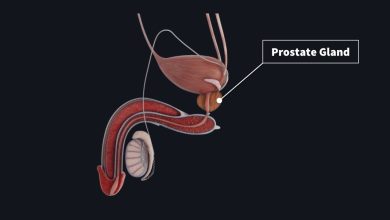How long after liver transplantation, patients can do physical activities?

We all live to be healthy and happy. But what happens if we fail to do so? Patients suffering from chronic and life-threatening ailments need to maintain a better and proper lifestyle than others. The same goes for patients suffering from end-stage liver diseases. Chronic liver ailments such as liver cirrhosis, liver failure, etc, need extra precaution and care. When a patient is under liver transplantation for end-stage liver ailments, the damaged portion of the liver is replaced with a healthy one.
Organ transplantation is an invasive procedure that comes with many postoperative complications and care. Permanent modification is made in a patient’s life, even in a pediatric liver transplant. Having a healthy and balanced diet, proper intake of vitamins and minerals, and refraining from any harmful habit that might cause more postoperative complications are a must.
Along with all these, maintaining regular physical activities plays a vital role in the patient’s life and well-being. Once the patient has undergone liver transplantations, the person is put on immunosuppressive drugs for a lifetime to reduce the chances of organ rejection. The immunosuppressant or immunomodulators suppress the patient’s immune system, making them more prone to infections. This all needs to be taken care of. Proper care and regular exercise can help to reduce these post-operative problems to a great extent. Let us know more about it in detail.
Read More: PRECAUTIONS, CAUSES, AND SYMPTOMS IN LIVER TRANSPLANT
Liver transplantation
Liver transplantation is a life-saving procedure. The liver is the second largest organ in our body. It performs hundreds of functions in a day. But what happens when the liver fails to perform its functions? The whole body is affected by liver dysfunction, even if it happens for a single day. Liver transplantation is the procedure that saves the end-stage liver ailments patients from this. In end-stage liver ailments, the liver cells are damaged, and the liver tissue starts scarring. It can be due to a hepatitis infection, chronic alcohol abuse, accumulation of fat in the liver, etc. These all cause irreversible damage to the liver.
In liver transplantation, the damaged disease portion is removed and replaced with a healthy one. After successful liver transplantation, the patient is kept on several immunomodulators and antibiotics. The doctors advise several precautions and care to speed up the healing and reduce the postoperative complication. Maintaining proper health, having a balanced diet, refraining from drinking alcohol and smoking, and regular exercise.

Importance of being physically active after a liver transplantation
Before having liver transplantation, many adults and even children feel sick and tired. Normal development and growth in children and normal functioning in adults are hampered. The patients suffering from chronic liver ailments have frequent hospitals visits, and the normal lifestyle is obstructed. Being physically active can help them regain their strength back at a faster pace. Regular physical activity helps them build and strengthen their muscles and bones while improving their liver functions.
The patient maintains regular exercise schedules have much fewer chances of having any post-operative complications and infections. The energy and self-esteem of the patients are boosted. The patients become less vulnerable to other debilitating health conditions. It holds much more importance for pediatric patients than in any adult patient. The children suffering from end-stage liver ailments need extreme care. Proper physical activity is important for developing their fundamental movement skills. Gross motor skills like running, jumping, hopping, and skipping are all compromised before liver transplantation. Physical activity allows them to practice these skills.
How soon should the patient resume physical activity after liver transplantation?
Just a few weeks after the surgery, the patients can resume normal physical activity. Walking around the house two to three times a day can be a good start. Infants who have undergone liver transplantation can practice skills such as rolling, sitting, and standing in the first few weeks. These all help to improve the developmental and motor skills in pediatric liver transplantation patients. Patients can be resilient and can return to their normal lifestyle after one to two months of the surgery.
Slight gentle aerobic exercises can help a lot. Lifting heavy weights or strenuous exercise should be avoided for the time being. After almost eight weeks of the surgery regular exercise can become a part of a daily routine. Resuming the daily work along with the regular exercise schedule can reduce post-operative complications. All these make the patients less vulnerable to infections by boosting their immune system naturally. A variety of aerobic exercises, regular yoga, muscle-strengthening exercises at least 3 days a week, and bone-building exercises at least thrice a week all can be included in your regular exercise schedules.
At the Bottom
Physical activity significantly increases the breathing and heart rate over an extended period of time. Increasing the heart pumping and stimulating oxygen flow in the bloodstream all ensures faster and proper healing. The heart gets strengthened and the blood pressure is lowered while keeping the body weight in check. By successful liver transplantation, the patient is given another chance of living life to the fullest. So don’t miss your chance and start your journey towards a healthy life today.




